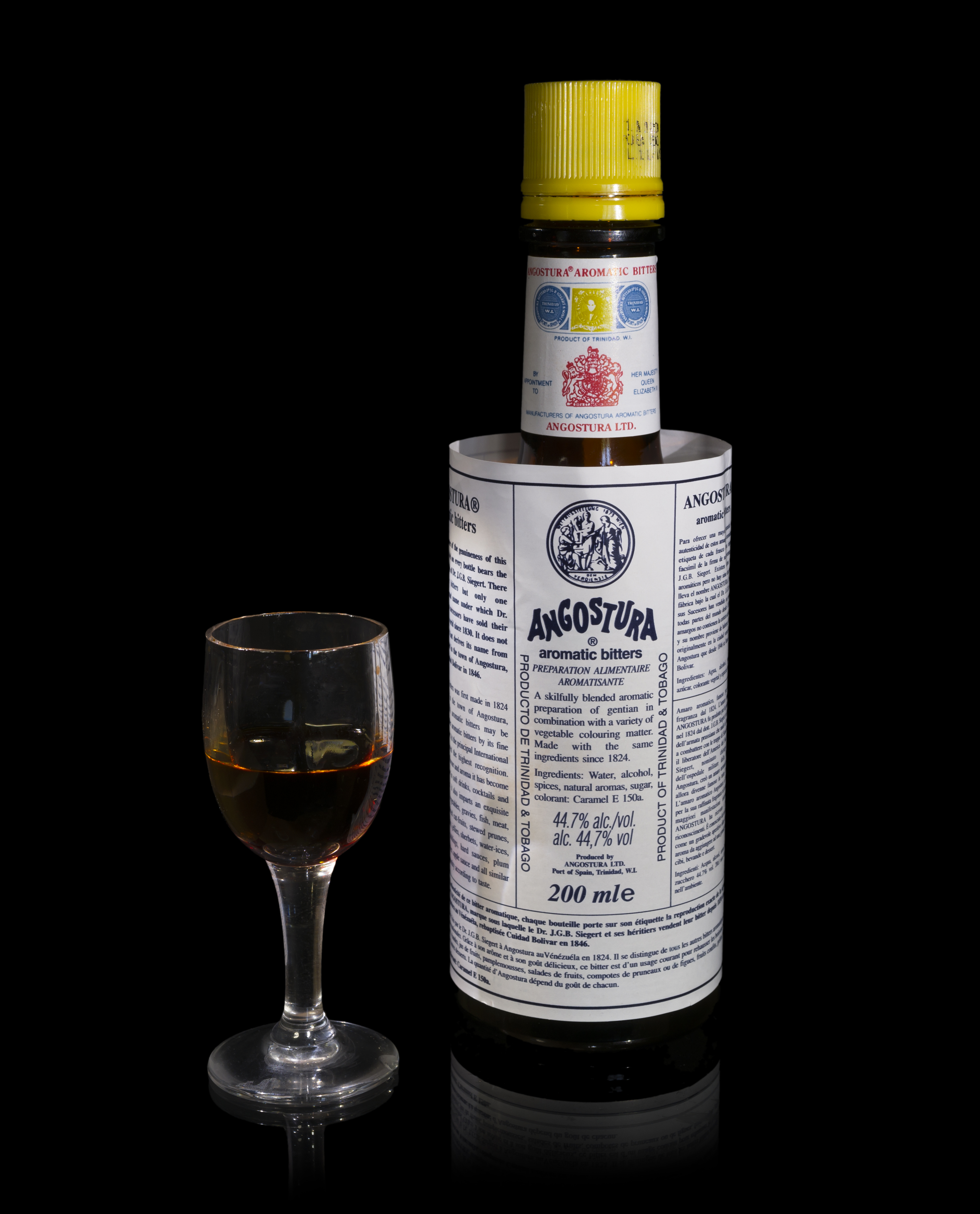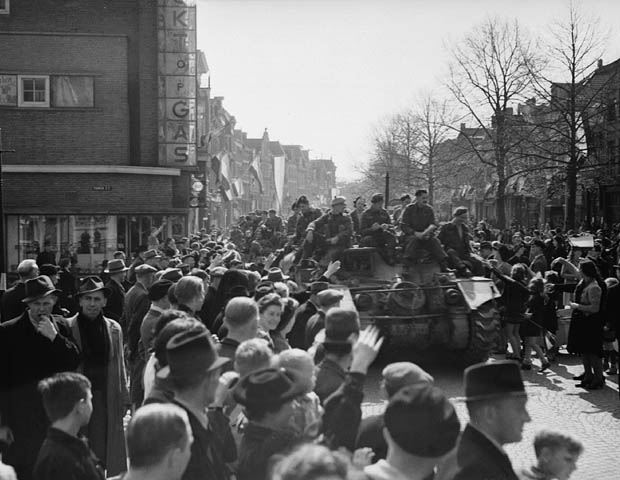|
Beerenburg
Beerenburg ( West Frisian: ''Bearenburch'') is a Dutch drink, made by adding herbs to jenever, with about 30% alcohol. The original Beerenburg was made in the early 18th century by the Amsterdam spice merchant ''Hendrik Beerenburg'', to whom it owes its name. Beerenburg opened his own shop at the Stromarkt 6 in Amsterdam in 1724, a location which to date shows on its roof a bear ('beer') crawling out of a fortress ('burcht'). Beerenburg kept his recipe secret but soon local varieties emerged, each with its own recipe. These were, however, not allowed to use the name "Beerenburg", which is why there are variations on the spelling, such as Berenburg and Berenburger. Despite the Amsterdam (North Holland) origin of Beerenburg, the drink became most popular in the northern provinces Friesland, Groningen and Drenthe. It is related to the Italian amaro, another type of digestive bitters. In the European Union, Beerenburg is classified as a spirit drink. Brands Some famous brands of ... [...More Info...] [...Related Items...] OR: [Wikipedia] [Google] [Baidu] |
The Plantinga Distillery
Klaas Pieter Plantinga (June 2, 1846 – July 17, 1922) was a Dutch distiller and founder of the Plantinga Distillery in Bolsward, Friesland province, the Netherlands. Ancestry Plantinga's great-grandfather was Jan Aukes, his great-grandmother was Baukje Annes (birth and death dates both unknown). Plantinga's grandfather was Klaas Jans (1747 – April 16, 1809), who married Binke Hessels (November 26, 1747 – January 8, 1821) on May 15, 1774. They had at least three children - Hessel Klazes (1787), Auke Klazes and Pieter Klazes (1793 – March 2, 1862). On August 18, 1811, when Napoleon Bonaparte decreed the civil registry, the three brothers adopted the 'Plantinga' surname on account of their background as gardeners ("Planters"). The Huizum region, where they lived, was an area traditionally rich in gardeners and planters. Pieter Klazes married Gertje Cornelis Prosé (February 12, 1823 - December 18, 1891) from Bergum in Tietjerkstradeel on October 19, 1845. They had six childr ... [...More Info...] [...Related Items...] OR: [Wikipedia] [Google] [Baidu] |
Bitters
Bitters (plural also ''bitters'') is traditionally an alcoholic preparation flavored with botanical matter for a bitter or bittersweet flavor. Originally, numerous longstanding brands of bitters were developed as patent medicines, but now are sold as digestifs, sometimes with herbal properties, and as cocktail flavorings. Since cocktails often contain sour and sweet flavors, bitters are used to engage another primary taste and thereby balance out the drink and make it more complex, giving it a more complete flavor profile. Ingredients The botanical ingredients used historically in preparing bitters have consisted of aromatic herbs, bark, roots, and/or fruit for their flavor and medicinal properties. Some of the more common ingredients are cascarilla, cassia (Chinese cinnamon), gentian, orange peel, and cinchona bark. Most bitters contain both water and alcohol, the latter of which functions as a solvent for botanical extracts as well as a preservative. The alcoholic stre ... [...More Info...] [...Related Items...] OR: [Wikipedia] [Google] [Baidu] |
Boomsma
Boomsma is a Dutch surname. Notable people with the surname include: * Arie Boomsma (born 1974), Dutch television presenter * Clifford David Boomsma (1915-2004), Australian botanist * Dorret Boomsma (born 1957), Dutch biological psychologist * Jacobus Boomsma (born 1951), Danish-Dutch evolutionary biologist * Rein Boomsma Reinder ("Rein") Boomsma (19 June 1879 – 27 May 1943) was a Dutch footballer, who played for Sparta and the Dutch national team. Club career Boomsma was born in Schagen, North Holland in 1879, and moved to Rotterdam in 1888. He started to ... (1879-1943), Dutch footballer {{surname Dutch-language surnames ... [...More Info...] [...Related Items...] OR: [Wikipedia] [Google] [Baidu] |
Hooghoudt Distillery
Hooghoudt is a Gronings producer of several alcoholic beverages. The company was founded in 1888. Hooghoudt's products include genever (a gin-like liquor), vodka and beerenburg. History The family company was founded in 1888 by Hero Jan Hooghoudt, who had been a baker. The distillery was based in the city centre of Groningen, but has since moved to a new complex in an office park in Euvelgunne. The distillery employs between 50–100 people and has an estimated revenue of 10 to 25 million euros. The distillery has a relationship with the Herberg Hooghoudt tasting room and café on Reguliersgracht ("regulator's canal") in Amsterdam Amsterdam ( , , , lit. ''The Dam on the River Amstel'') is the Capital of the Netherlands, capital and Municipalities of the Netherlands, most populous city of the Netherlands, with The Hague being the seat of government. It has a population .... References External links Hooghoudt Distillers English website (requires age verification) Compani ... [...More Info...] [...Related Items...] OR: [Wikipedia] [Google] [Baidu] |
Bolsward
Bolsward (, West Frisian: ''Boalsert'') is a city in Súdwest-Fryslân in the province of Friesland, the Netherlands. Bolsward has a population of just under 10,200. It is located 10 km W.N.W. of Sneek. History The town is founded on three artificial dwelling mounds, the first of which was built some time before Christ. During the Middle Ages, Bolsward was a trade center and port city connected to the North Sea via the Middle Sea. This connection was lost when the Middle Sea was reclaimed to form arable land. After this, a canal was dug to the Zuiderzee. The town is first mentioned in AD 725. As a trading city, Bolsward was granted city rights by Philip the Good in 1455. Bolsward was made a member of the Hanseatic league in 1422. Before being merged into the municipality of Súdwest-Fryslân, the town of Bolsward was an independent municipality. Notable historical figures Notable historical figures born here include: * Juw Juwinga or Jonghema (14th century), 11th potes ... [...More Info...] [...Related Items...] OR: [Wikipedia] [Google] [Baidu] |
Sneek
Sneek (; fy, Snits) is a city southwest of Leeuwarden and the seat of the former municipality of Sneek in the province of Friesland, Netherlands. As of 2011 it is the seat of the municipality of Súdwest-Fryslân (Southwest Friesland). The city had approximately 33,855 inhabitants in January 2017. Sneek is situated in Southwest Friesland, close to the Sneekermeer, and is well known for its canals, the Waterpoort (''Watergate'', the symbol of the city), and watersports (hosting the annual Sneekweek, the largest sailing event on inland European waterways). Sneek is one of the '' Friese elf steden'' ("Eleven cities of Friesland"). The city is very important in the southwestern part of Friesland (called the Zuidwesthoek, or ''Southwest Corner''). History History Sneek was founded in the 10th century as ''Chud'' on a sandy peninsula at the crossing site of a dike with an important waterway (called the ''Magna Fossa'' in old documents). This waterway was dug when ... [...More Info...] [...Related Items...] OR: [Wikipedia] [Google] [Baidu] |
Dokkum
Dokkum is a Dutch fortified city in the municipality of Noardeast-Fryslân in the province of Friesland. It has 12,669 inhabitants (February 8, 2020). The fortifications of Dokkum are well preserved and are known as the ''bolwerken'' (bulwarks). It is the fifth most popular shopping city in Friesland. It also had the smallest hospital in the Netherlands. __TOC__ History The best-known event in Dokkum's history is the martyrdom of the Anglo-Saxon missionary Saint Boniface in 754. Oliver of Cologne preached the Fifth Crusade in Dokkum in 1214 and Dokkum sent a contingent; the crescent in the coat of arms of Dokkum refers to this event. Dokkum acquired city rights in 1298. In 1572 Dokkum was sacked by the Spaniards after it had joined the Dutch Revolt. In 1597, the Admiralty of Friesland was established in Dokkum. However, it was moved to Harlingen in 1645. In 1971 the city was included in the list of Dutch 'Urban and village conservation areas'. In 1923, when Catholics in the ... [...More Info...] [...Related Items...] OR: [Wikipedia] [Google] [Baidu] |
Leeuwarden
Leeuwarden (; fy, Ljouwert, longname=yes /; Town Frisian: ''Liwwadden''; Leeuwarder dialect: ''Leewarden'') is a city and municipality in Friesland, Netherlands, with a population of 123,107 (2019). It is the provincial capital and seat of the Provincial Council of Friesland. It is located about 50 km west of Groningen and 110 km north east from the Dutch capital Amsterdam (as the crow flies). The region has been continuously inhabited since the 10th century. It came to be known as Leeuwarden in the early 9th century AD and was granted city privileges in 1435. It is the main economic hub of Friesland, situated in a green and water-rich environment. Leeuwarden is a former royal residence and has a historic city centre, many historically relevant buildings, and a large shopping centre with squares and restaurants. Leeuwarden was awarded the title European Capital of Culture for 2018. The Elfstedentocht (Eleven Cities Tour), an ice skating tour passing the eleven cities of Fri ... [...More Info...] [...Related Items...] OR: [Wikipedia] [Google] [Baidu] |





